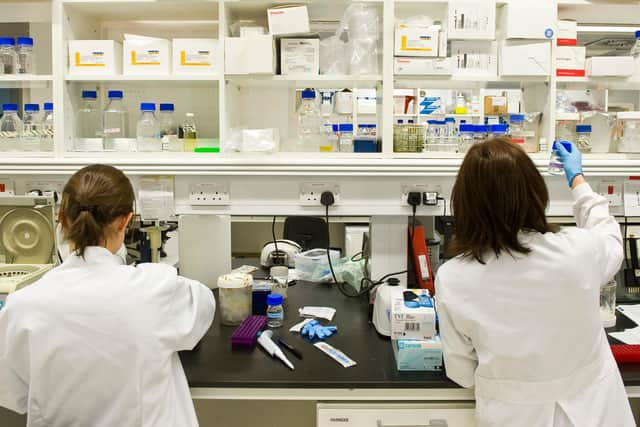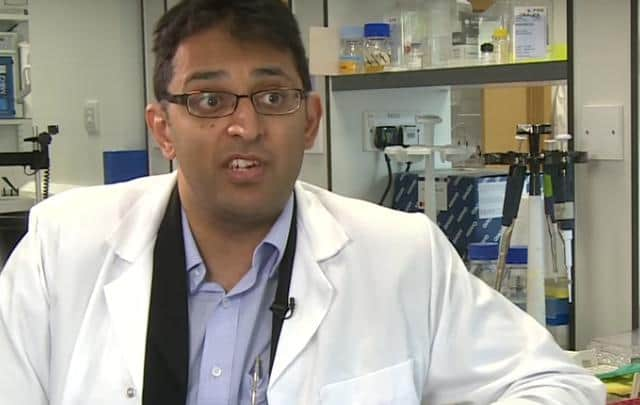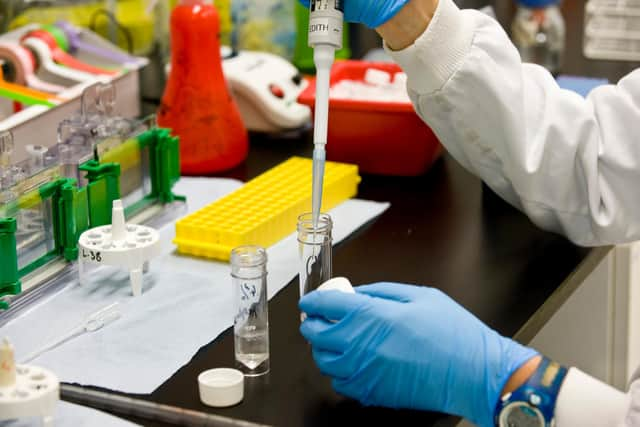Army of scientists redeployed to Edinburgh in search of Covid-19 treatments
and live on Freeview channel 276
An army of up to 150 scientists and researchers are to be deployed to work on a project aimed to test drugs to find a treatment for COVID-19.
The researchers at the University of Edinburgh’s Centre for Inflammation Research, will be moved to the new project named STOPCOVID.
Advertisement
Hide AdAdvertisement
Hide AdThey will test existing and experimental drugs in the hope of finding a treatment for the coronavirus which could be rolled out worldwide and reduce the need for a vaccine and improve the chances of avoiding the use of a ventilator in more severe cases.


The project will focus on the so-called ‘inflammatory pathways’ which lead directly to lung injury, associated with the most sever aspects of COVID-19.
Drugs will be tested to see if they block this and other types of inflammation in the early stages of the disease in the hope that it could change the course of infection and prevent the need of a ventilator.
The team believe new treatments could be made available before a vaccine becomes widely available, mainly due to the use of repurposed drugs for other conditions which are already in clinical use or in the testing phase.
Advertisement
Hide AdAdvertisement
Hide AdCollaboration with pharmaceutical companies from around the world has identified some key drugs and mechanisms that are in development or being used for other diseases already.


Alongside this, the researchers are working in partnership with the University of Bath to explore the use of fibre-based technology to administer drugs and take lung samples.
Professor Kev Dhaliwal, STOPCOVID lead and consultant in Respiratory Medicine at the University of Edinburgh, said: “Covid-19 is the biggest global challenge of a generation.
“By rapidly testing therapies that stop the inflammatory cascade associated with the most severe aspect of the disease – leading ultimately to respiratory failure – we can urgently discover ways to prevent the need for a ventilator.
Advertisement
Hide AdAdvertisement
Hide Ad“We must unite together, across sectors, across disciplines, across continents to tackle the devastating effects of this virus as fast as possible.”


The project has received £2m in funding from LifeArc, a medical research charity, and funding from the investment firm Baillie Gifford.
A total of £15m in private sector funding is the aim for the team, with discussions underway with other potential funders.
The funding will cover trial and clinical costs, data analyses and the scaling up of any drugs that show promise.
Advertisement
Hide AdAdvertisement
Hide AdThe project will be based at the Edinburgh BioQuarter, allowing close work with NHS Lothian.
The team believes that working closely with regulatory experts could fast-track any successful treatment into national and international clinical trials.
Dr Catriona Crombie, associate director in technology transfer at LifeArc, said: “The work of Professor Dhaliwal and his team aligns to LifeArc’s focus on translational medical research and accelerating the development of promising ideas that address patient need.
“We are pleased to support STOPCOVID and be part of the collective effort in the rapid and effective testing of any promising medicines that could potentially provide a treatment option for Covid-19 patients at this crucial period.”
Advertisement
Hide AdAdvertisement
Hide AdThank you for reading this story on our website. While I have your attention, I also have an important request to make of you.
In order for us to continue to provide high quality and trusted local news on this free-to-read site, I am asking you to also please purchase a copy of our newspaper.
Our journalists are highly trained and our content is independently regulated by IPSO to some of the most rigorous standards in the world. But being your eyes and ears comes at a price. So we need your support more than ever to buy our newspapers during this crisis.
With the coronavirus lockdown having a major impact on many of our local valued advertisers - and consequently the advertising that we receive - we are more reliant than ever on you helping us to provide you with news and information by buying a copy of our newspaper.
Thank you
Frank O'Donnell
Editorial Director
Comment Guidelines
National World encourages reader discussion on our stories. User feedback, insights and back-and-forth exchanges add a rich layer of context to reporting. Please review our Community Guidelines before commenting.